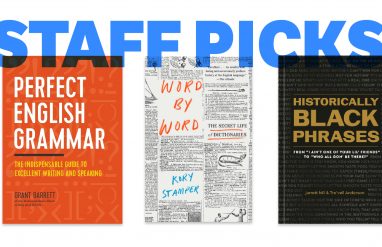Cinnamon words
Guitarists have signature riffs, rappers their ad-libs, pop stars their dance moves. And authors? Well, they have words.No, duh, you may be thinking. But there are some authors who have a tendency to use certain words statistically more often than others. These are cinnamon words, as data journalist Ben Blatt memorably dubbed them in his 2017 book, Nabokov’s Favorite Word is Mauve: What the Numbers Reveal About the Classics, Bestsellers, and Our Own Writing.
Here are 10 cinnamon words or expressions consistently used by some of our most beloved authors throughout their stories. Look closely—maybe you already have recognized a few!























